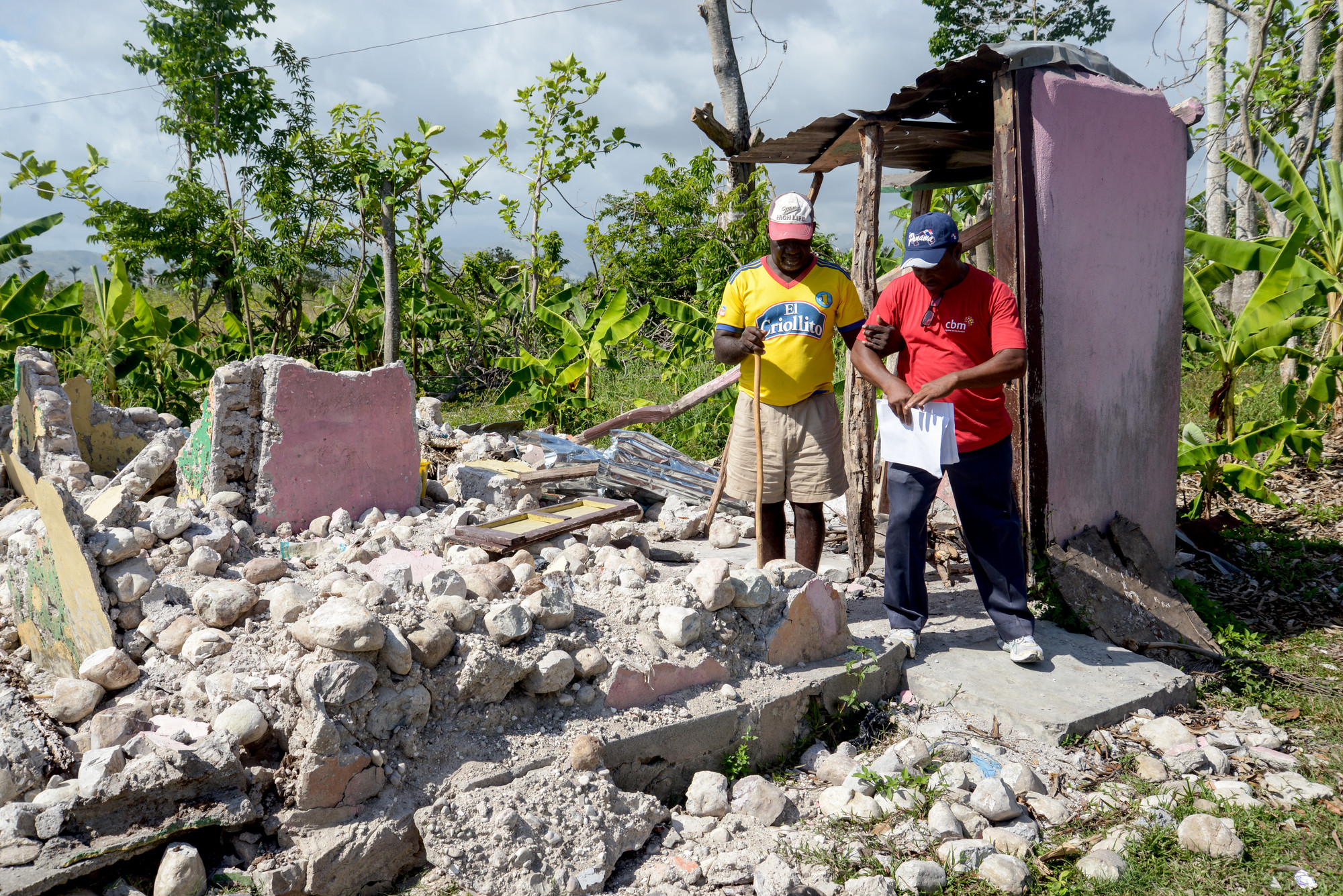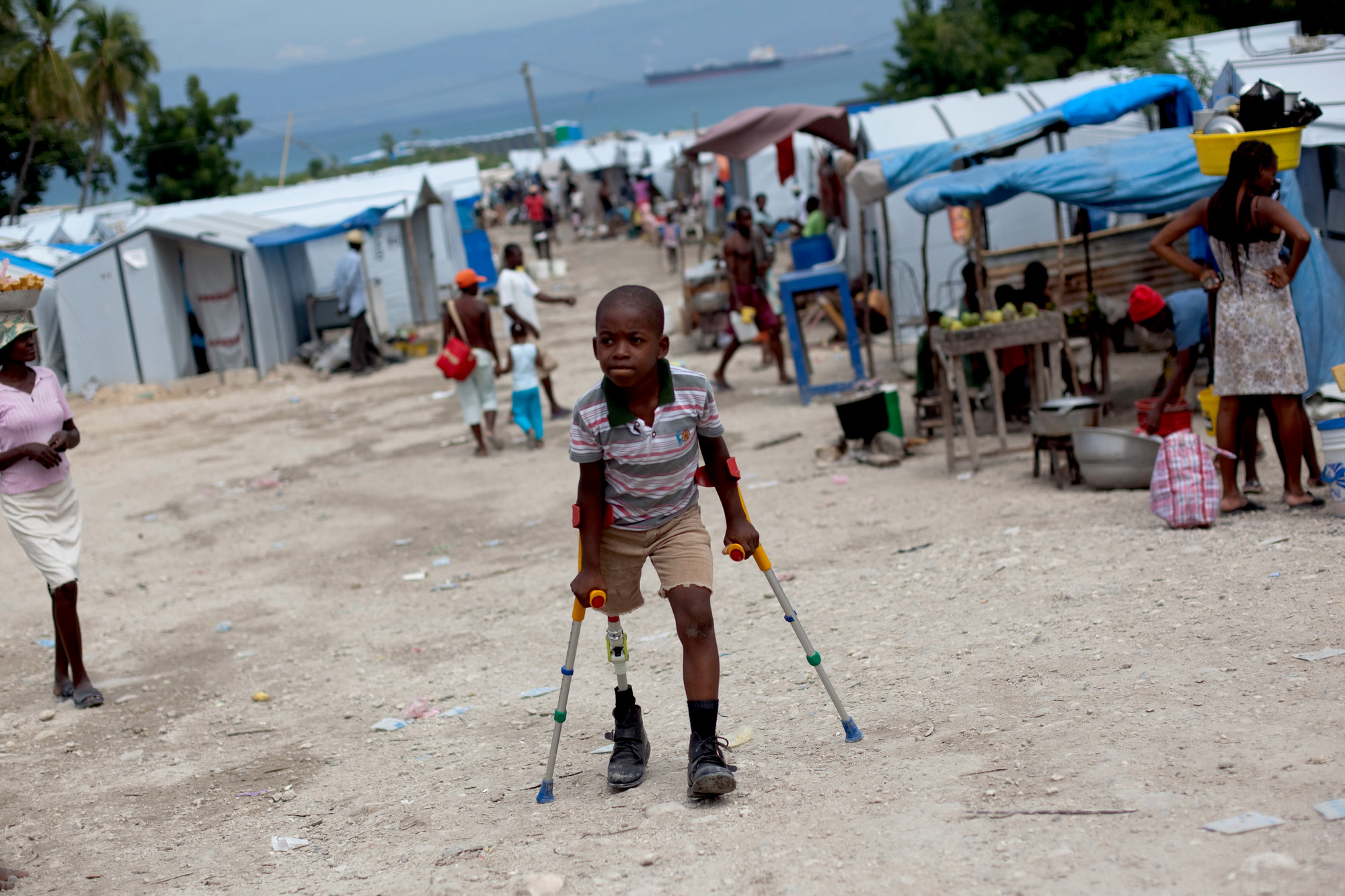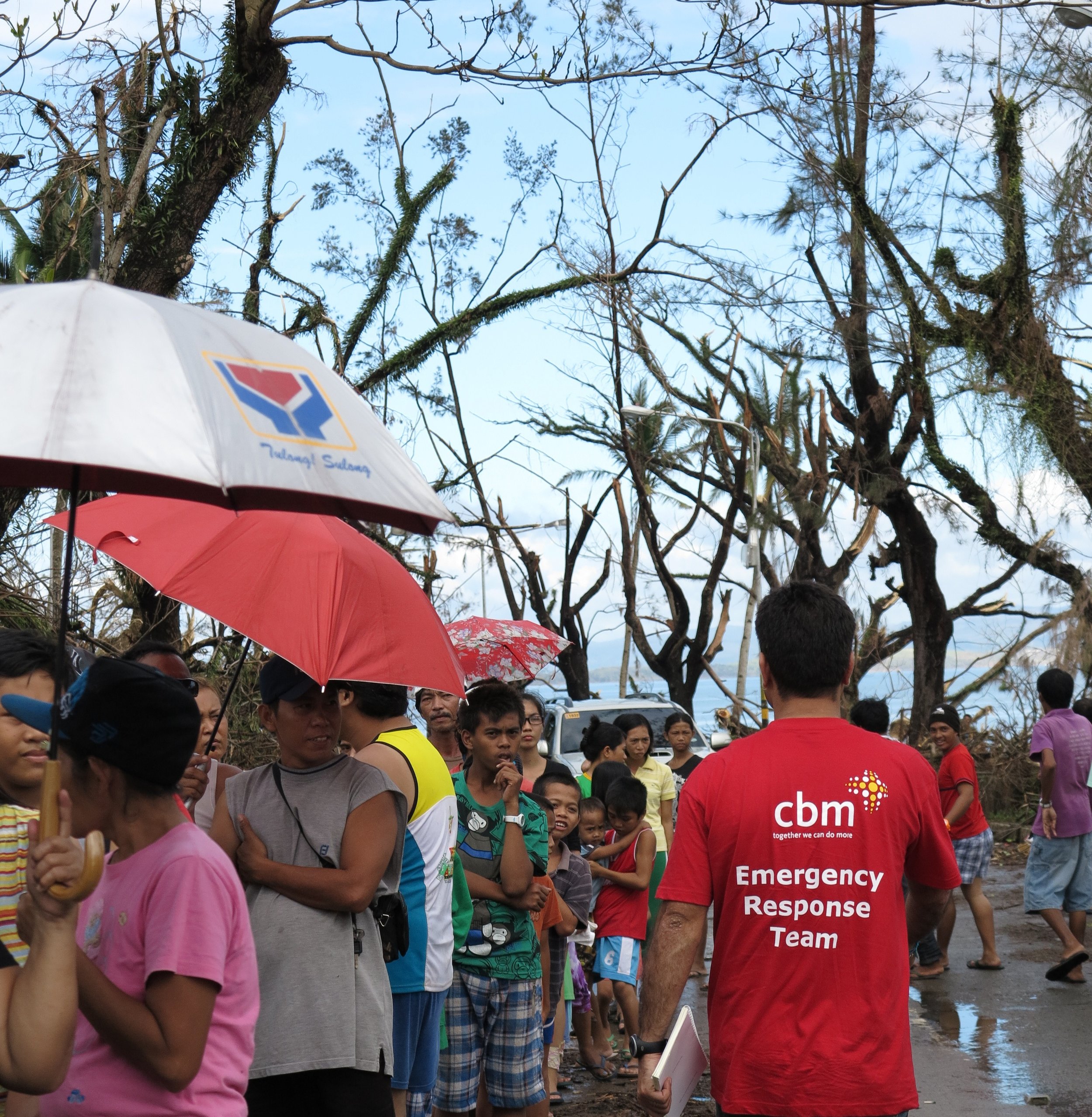CBM's Emergency work
Emergencies
The impact of a disaster or conflict is greater for those living with a disability
During war, when an earthquake or other natural disaster hits, people with disabilities may be unable to escape the situation. They could be blind, dependent on a wheelchair, or other assistive devices. They may not be able to access basic emergency and health services, like finding food and water distribution sites in a refugee camp. Sadly, they are often put to the back of the queue in dire situations of survival. But we believe that no one should be left behind. We ensure that the most vulnerable are not forgotten.
When emergencies occur, CBM and our partners identify people living with disabilities in the disaster area, and meet their immediate needs of food, water, shelter and healthcare. We also work to identify and care for people who have acquired a disability as a result of the disaster:
Injuries associated with warfare, such as amputations, burns and blindness
Mental health problems associated with trauma and violence, such as post traumatic stress disorder.
Poor nutrition as a result of children being displaced from their families
Poor health as a result of a breakdown in health, water and sanitation infrastructure
After the initial emergency response, CBM remains in the affected area to develop long-term programmes to help people rebuild their lives:
Health care and rehabilitative services
Livelihood programs
Education and vocational training
Advocacy to ensure the voices of persons living with disabilities are heard and their needs are acted upon in planning and reconstruction.



